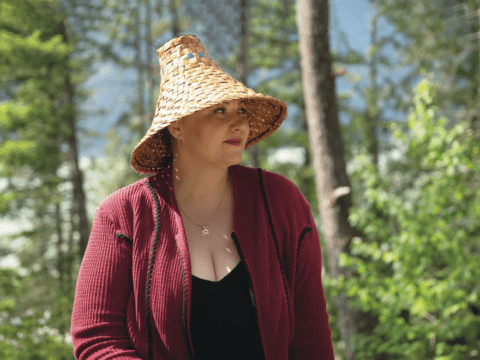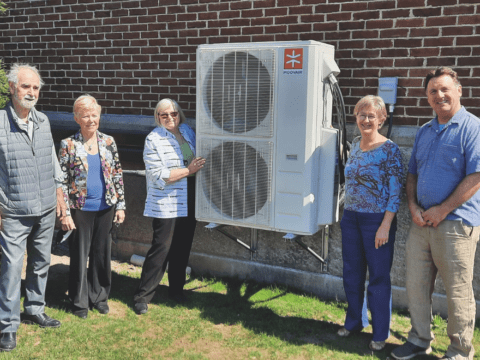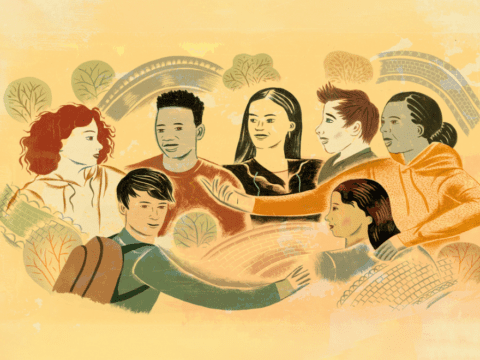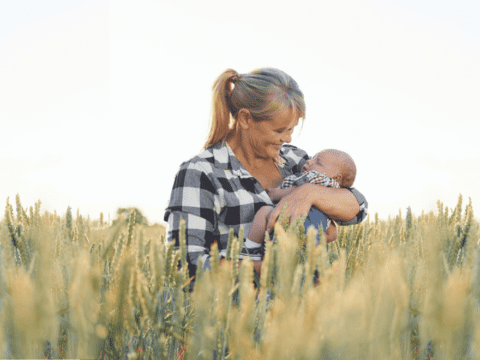Staying connected across The United Church of Canada has always been difficult, and the COVID-19 pandemic and the denomination’s 2019 restructuring added new challenges. In-person meetings are less frequent, and the elimination of presbyteries means fewer official opportunities to connect locally. Churches close all the time.
In this context, a new online platform is linking members across the country through continuing congregational education and discussion groups about everything from artificial intelligence to medieval theology. The results are impressive. Since it launched in 2022, CHURCHx has gained roughly 7,000 users and over 300 courses and programs. “We wanted to create something that would pass through both congregational and denominational walls,” says Rev. Tay Moss, an Anglican priest who created CHURCHx in his work as the cordinator of the Toronto United Church Council’s Innovative Ministry Centre.
You may unsubscribe from any of our newsletters at any time.
CHURCHx is a one-stop shop for a course or event, Moss tells Broadview over email. “For example, a group could use CHURCHx to not only host their Zoom links, but to communicate with the members of the group (via email or forums), co-ordinate activities with a calendar, upload and download documents, and many, many more types of activities.”
Course leaders can host meetings directly on CHURCHx’s built-in software, but most organizers use Zoom and house their links on the site.
CHURCHx handles registration and payments, and course leaders can customize their event extensively — one can even limit access to documents to certain groups of participants or instructors. Potential attendees have access to a diverse catalogue of courses, live and recorded, free and paid.
Moss created CHURCHx during the most disruptive time in recent history: the COVID-19 pandemic. He says that before the pandemic, many people in the church thought that technologies like Zoom were a better fit for the business world and would be hard for members to adopt.
More on Broadview:
“And then COVID happened, and we realized that, actually, if people are sufficiently motivated, they can definitely learn how to use new technologies,” he says. “So once that happened, we knew that building a kind of online collaboration and learning environment was inevitable.”
Moss developed an online program to solve three problems: the decline of ecumenism, due in large part to the survival mentality of congregations in all denominations; the predatory nature of social media; and the prevalent “talking heads” model of education, in which experts share their knowledge with passive learners. With CHURCHx, “it is no longer experts lecturing us, but a synthesis of ideas from participants that mobilizes, creates and shares new knowledge,” he says.
To interact with their audiences, he says that churches had been using tools like Facebook or Instagram, which were “not designed to create experiences that were educational or particularly spiritually enlightening.”
CHURCHx, by contrast, has no ads. “Facebook is engineered to give you a dopamine hit,” he says, and “is designed solely to sell us stuff.” Moss envisioned an approach based on community and collaboration.
He also saw merit in creating a tool specifically for people of faith, who have “a different set of values” than those espoused by other online education platforms.
CHURCHx is already being used across the United Church for everything from training licensed lay worship leaders to hosting national meetings.
Rev. Stephen Fetter, the program co-ordinator for webinars and electronic meetings for the General Council office (GCO), says that the General Council Executive meets on the platform, and next year’s General Council meeting in Calgary will use it too. The church’s GO Project Sunday school curricula are also on CHURCHx.
While the United Church has been CHURCHx’s largest partner, other participants include the Anglican Church of Canada’s Diocese of Toronto, the Canadian Council of Churches and Knox College at the University of Toronto. Moss sees even more partners joining this project, and there is potential to license CHURCHx to organizations with shared values.
Both creators and participants speak positively about CHURCHx’s capabilities.
Rev. Bruce Dickson, the minister at Dublin Street United in Guelph, Ont., participated in CHURCHx’s three-month “Celebrate Stewardship” program last fall and winter along with others from his church and was impressed with his experience. He says the ability to share resources, reflect on assignments and collaborate as a group were key elements that made the program successful.
“The follow-up coaching was also extremely helpful, and it was nice to have all of our team on the same page,” says Dickson. Being able to work with other local congregations has opened doors to new conversations as well.
Adele Halliday is the anti-racism and equity lead for the General Council office. She appreciates that CHURCHx creates a more interactive, less transactional educational experience. She points to a program she developed with reconciliation and Indigenous justice animator Sara Stratton using the book Healing Haunted Histories: A Settler Discipleship of Decolonization. Stratton invited the authors to participate in the program, not only to speak, but to encourage conversations about people’s diverse perspectives on colonialism.
Reflecting on their own stories of colonization, the participants could go away and come back to share what turned into “rich conversations,” according to Halliday.
“CHURCHx allows for that very active in-between,” she says. “We create a community of people learning together, and it really builds connection.”
There have been some hiccups. Moss says some people are frustrated that they have to log in to use the program, but he points out that few platforms are anonymous anymore. Further, there is not universal access to high-speed internet across the country, and CHURCHx can prove challenging to use with slow service. Moss also says that technological glitches can be the fault of event organizers, like users not being able to join an event because the organizer didn’t obtain a Zoom licence that was adequate for the number of attendees. As for the future, Moss would like to integrate artificial intelligence into events to help leaders curate a list of resources from around the web to share with participants.
We are living in a time when much of the western congregational model of church is in decline. Moss sees that traditional model as “one particular expression of how to do this whole God thing,” an expression that’s “becoming less and less effective.”
“In a world where the mainline denominational parish model is in jeopardy, it’s necessary to have platform like CHURCHx, which can resource that whole situation and have the kind of versatility and capacity to be highly adaptable,” he says.
UPDATE: A previous version of this story stated that Adele Halliday invited the authors of Healing Haunted Histories: A Settler Discipleship of Decolonization to participate in a program that incorporated their book, when it was Sara Stratton that extended the invitation. This version also adds Sara Stratton’s title and makes clear to readers that the authors were invited to participate for the length of the program, not just at the beginning. This version has been corrected and updated.
***
Rev. Christopher White is a writer and minister in Hamilton.














